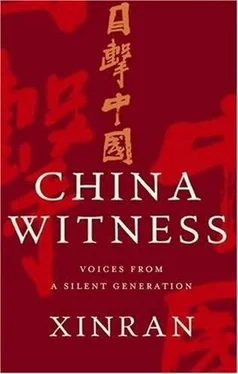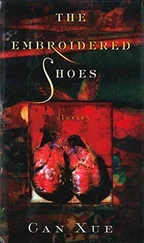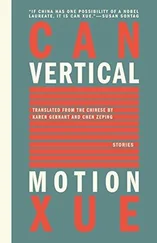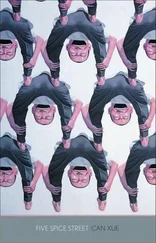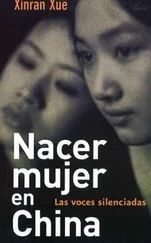During our last interview in 1996, Hu Feibao refused to accept what I had found out. Although, he told me, locals sometimes tried to frighten their children into good behaviour by telling them "the Black Lama would get them" if they were naughty, he was generally well liked in those parts, because he never robbed the poor, Mongolians or couriers. A few villages along the way to the west even served as his eyes and ears, helping him with information and advance warnings. After his death, Hu went on, the code of bandit practice he had enforced was upheld by all the local gangs, a few of whom still operated even through the 1960s campaign against banditry waged by the People's Liberation Army. This code, according to Hu Feibao, was much stricter than the moral principles preached by the Nationalists, by Ma Bufang or by the Communist Party. He had lived by these rules all his life, and even after decades in prison he wouldn't admit that the robberies he and his fellow bandits had committed had been crimes. "That's how my people had always lived. If we hadn't stolen from the Cash Highway, how would our women and children have survived? How would the local villages have had goods to trade? For centuries and dynasties, we were the only ones who'd ever looked out for these people. We never forced them to work for us, or stole their food and livestock. And we never kidnapped women who were already betrothed, or married with children. We only took unmarried girls, and we treated them much better than the village men; no one was allowed to beat their wives or children. The locals actually sent their daughters out onto the road to wait for us, often leaving them there for days on end. Sometimes they even starved or froze to death. Anyway, if we'd had no women, where would the sons for the gang have come from?"
This was to be our final meeting. We talked, I remember, between packing trucks inside the camp's factory complex, where he was making up bundles of gloves to put into boxes. His hands were trembling with old age. I sat silently to one side, listening to his protestations.
His stories made a deep impression on me. I had never imagined that someone my government had locked up for decades as a bandit, as a menace to society, would still show such courage and spirit; that this withered old man could once have led such an exciting life, or that the communities living by the Silk Road could have so harmoniously coexisted with this strange, apparently criminal society. In Chinese, the word "bandit" has entirely negative connotations. But the bandits along the Silk Road had had their own culture and moral standards. Hu Feibao shook me into reexamining both my own ability to judge right and wrong, and my understanding of Chinese society. Our tendency to judge other societies by our own standards can lead us to punish the innocent.
By the time I had decided to do the interviews for this book in 2006, Hu Feibao had had a stroke. When I telephoned his camp, the warder told me he was no longer able to talk. Suspecting the authorities were trying to stop him speaking to me, I tried again some while later. This time, I managed to talk directly to him. His voice was mumbling, indistinct; it had lost the confident, dignified ring that decades in prison had not succeeded in grinding out. I imagined him holding the phone with trembling fingers, dribbling into the receiver. I knew this was not how this once formidable individual would wish to be remembered. I deleted his name from my list of interviewees.
In the initial interviews I did by phone in May and June 2006, another difficulty that I had anticipated presented itself. When I said that I would like to talk to them in person, my interviewees began to get cold feet; even to pull out completely. More and more subjects became out of bounds; some asked not to be filmed, or taped; others asked me if I knew what might happen after the interviews were published. I could tell that they were torn between the yearning to take this opportunity – quite possibly the last of their lives – to speak out, and anxiety for the possible consequences. Could I get hold of a government permit to speak to them? several people suggested. Or an official "interviewee protection" guarantee? As if the decision to talk about their lives was one for the Communist Party, rather than the individuals themselves, to make.
All of which only confirmed what I already knew from two decades of working as a journalist in China. Even though almost fifty years have passed since Mao's "Liberation" of the country, the Chinese people have not yet succeeded in escaping the shadow of three millennia of imperial totalitarianism and a twentieth century of chaotic violence and oppression, to speak freely without fear of being punished by the prevailing regime.
As I sat in my London home, I had no idea whether these people would really open up to me once I searched them out in China. When we sat down opposite each other, with the video camera running, would they respond by shutting themselves even further away from me? I didn't know whether I would be able to persuade them to talk; whether I would have the skill to tease their memories out of them.
But I knew I had to go forward: not only as a personal document of the work I had done over the past twenty years, but also for Chinese youth today, and especially for PanPan, my son and inspiration – a young man who had grown up between Britain and China. To help him understand the past of the China he knew, this project was a risk I was willing to take.
I began losing sleep, thinking constantly about how I could get my interviewees to trust me, to open up to me; how I could demonstrate to them my sense of responsibility towards their era; how I could persuade them to leave their accounts of what they had witnessed with me.
One June morning, lying in bed in our seventeenth-century cottage in Stourhead, I watched through the window the birds singing and skitting through the trees, their carefree twittering contrasting so markedly with the anxiety I felt at the task ahead of me. I wanted to run away from the project, to take refuge in beautiful, green Somerset, and write escapist fairy stories I'd thought up as a child, or reminiscences about places I had been to, people I had met, friends I had known.
If my mother-in-law, the novelist Mary Wesley, had still been alive, it would have been her ninety-fourth birthday. For some reason, since I had decided to write this book, I had been thinking a lot about her – particularly after a biography of her, Wild Mary , had come out. Would Mary have been happy with this document of her life, many people had wondered. Would she have regretted the choices she had made? These were the questions that I wanted to ask my interviewees, and also the questions that Western journalists often asked me: Did I regret anything about the forty years I had lived in China before I moved to the West? Had they been worthwhile?
Though I couldn't explain why, my instinct was always to say yes – they had been worthwhile. Through thousands of years of the Chinese past, so many women have toiled their lives away, bearing children, bringing up their families, gaining nothing for themselves. Would they have said their lives had been worthwhile? I don't even know if they would have asked themselves the question. But I'm sure that towards the end of their lives, a great many Chinese people – both men and women – have thought back over their past, flicking through albums of memories they would never reveal to their children and grandchildren. What, I wonder, might these albums contain? Regret, perhaps? Self-denial? Or joyful affirmation of the life just lived? Perhaps their children and grandchildren would imagine them to contain only blindness and stupidity.
That day, I phoned a woman called Jin Zhi (not her real name). Jin Zhi is an academic authority on the former Soviet Union, specialising particularly on the relations between Mao and Stalin. An outstanding linguist, she speaks fluent English, Russian and German. Despite receiving a Western-style education up to the age of eighteen, she has been throughout her life a passionate supporter of the Communists, firmly believing that the Party will "win back for the Chinese people the dignity that they lost after the Opium Wars". She was an old friend of the family, so we were often in touch.
Читать дальше
